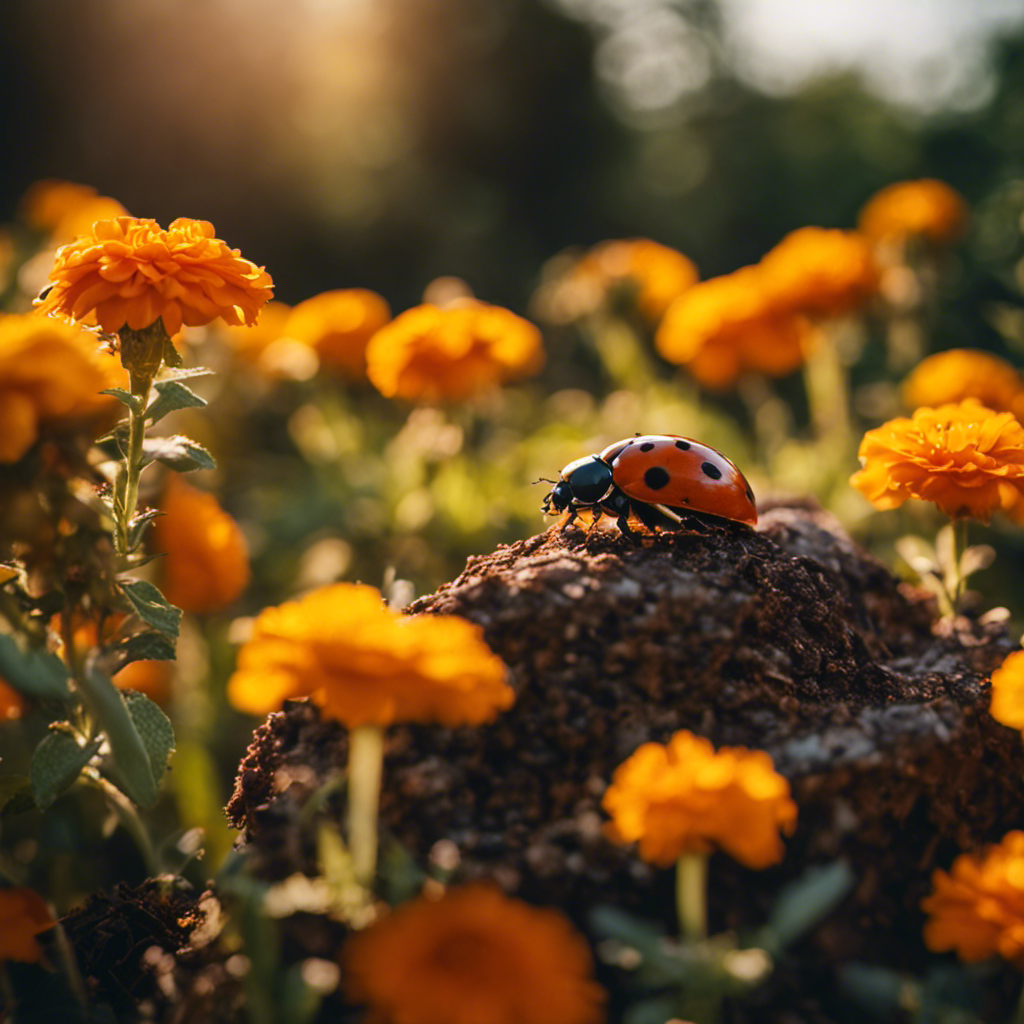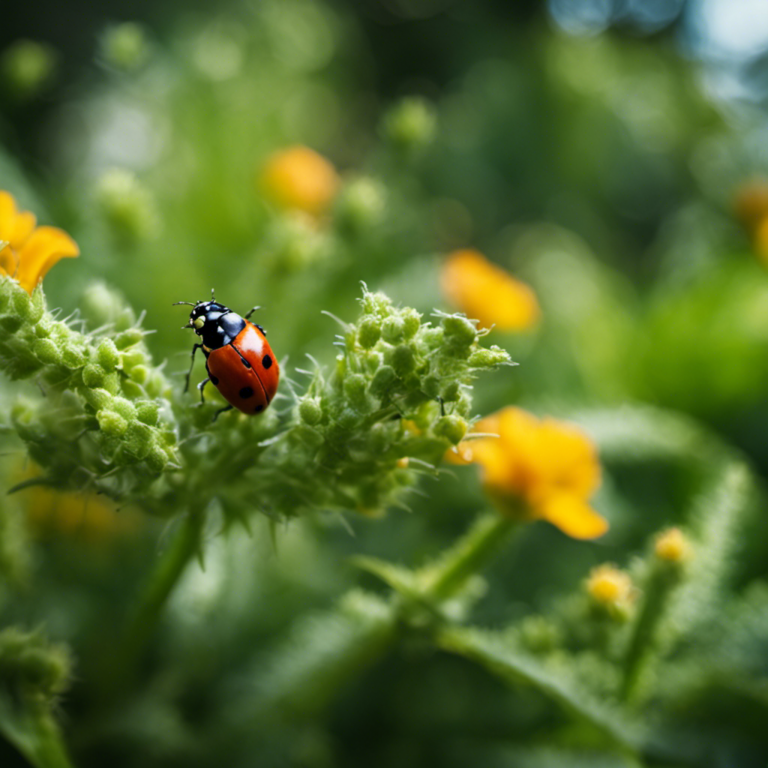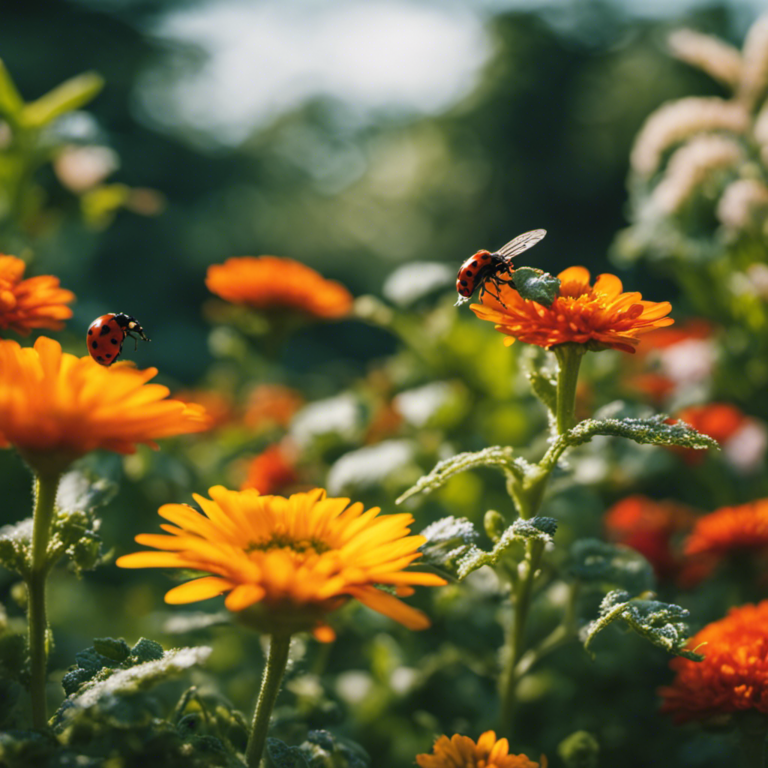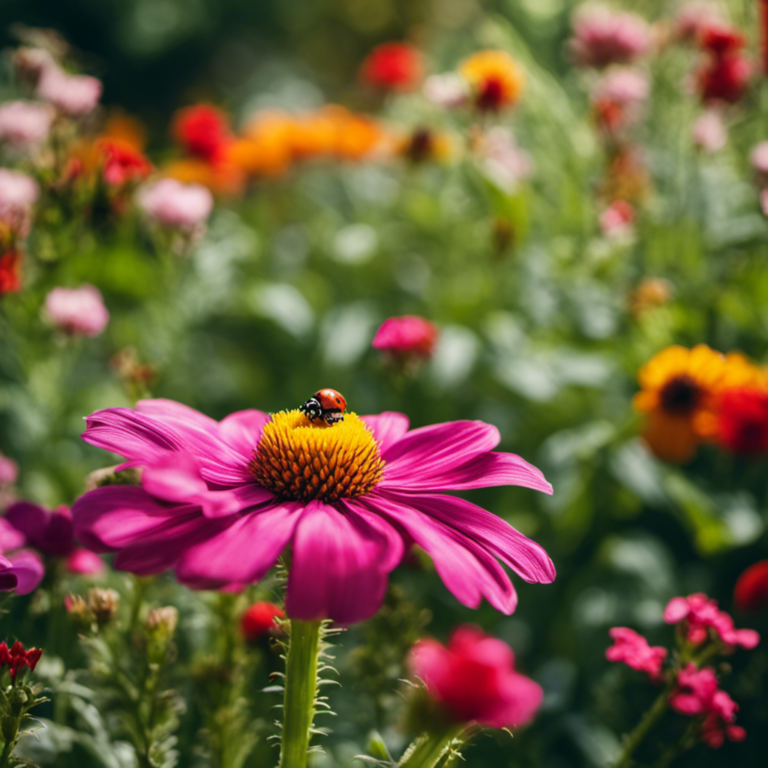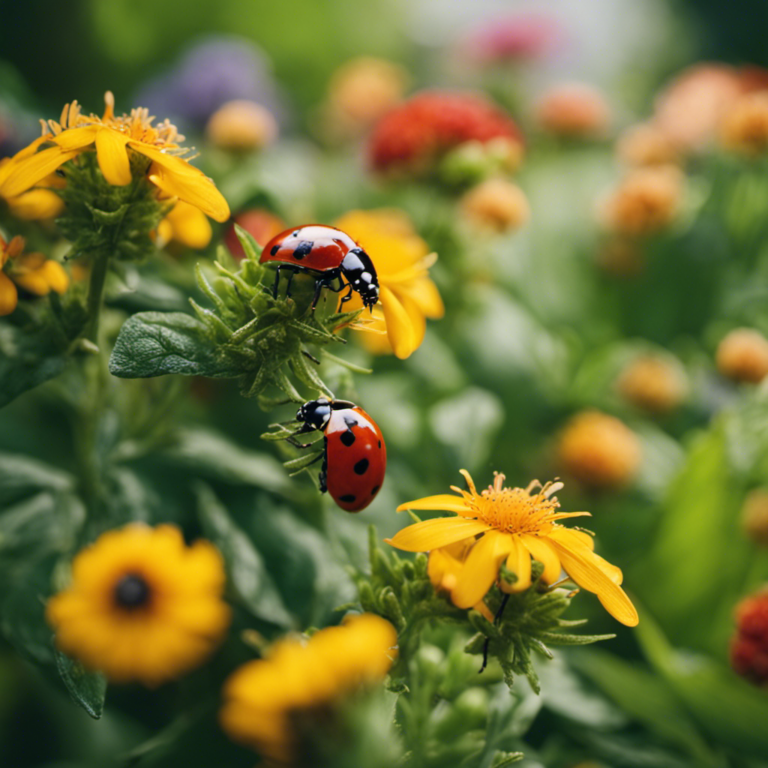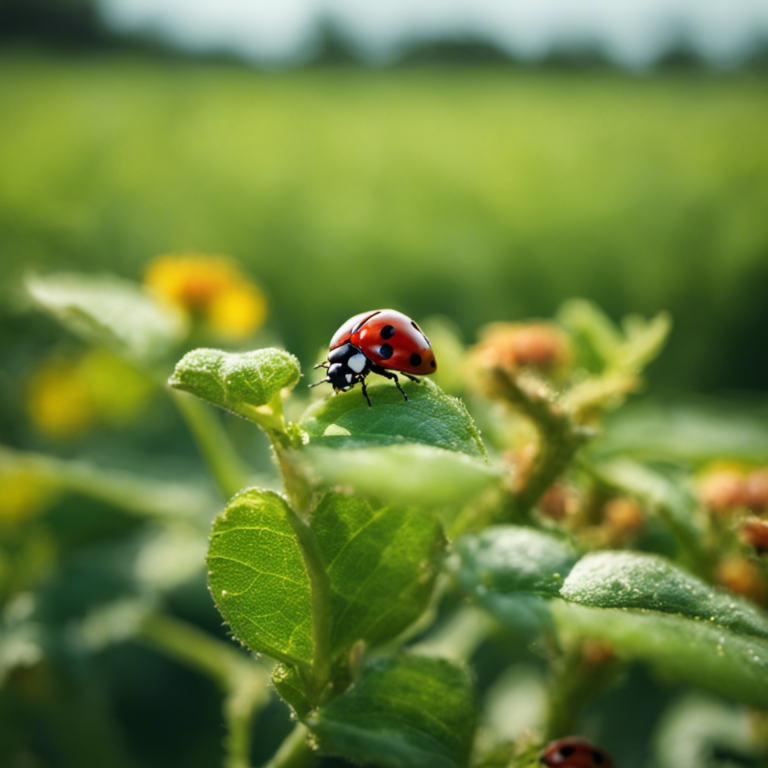Pesky garden pests can be a real nuisance, but don’t worry! There are natural ways to get rid of them and enjoy a bountiful harvest.
Instead of relying on harmful chemicals, you can use natural repellents, attract beneficial insects, and practice companion planting. These methods create a balanced garden ecosystem where pests are kept at bay.
Homemade sprays and physical barriers can also provide effective protection.
With these eco-friendly approaches, you can say goodbye to harmful chemicals and hello to a thriving garden.
Get ready to enjoy the fruits of your labor in a peaceful and tranquil environment.
Remember, a little effort goes a long way in maintaining a healthy garden.
Key Takeaways
So, there you have it! By using natural methods to repel pests, attracting beneficial insects, practicing companion planting, making your own sprays, and using physical barriers, you can effectively get rid of garden pests without using harmful chemicals.
It’s truly remarkable how nature provides us with all the tools we need to maintain a healthy and eco-friendly garden.
So go ahead, put these techniques into action and witness the thriving beauty of your garden.
Happy gardening!
Natural Repellents
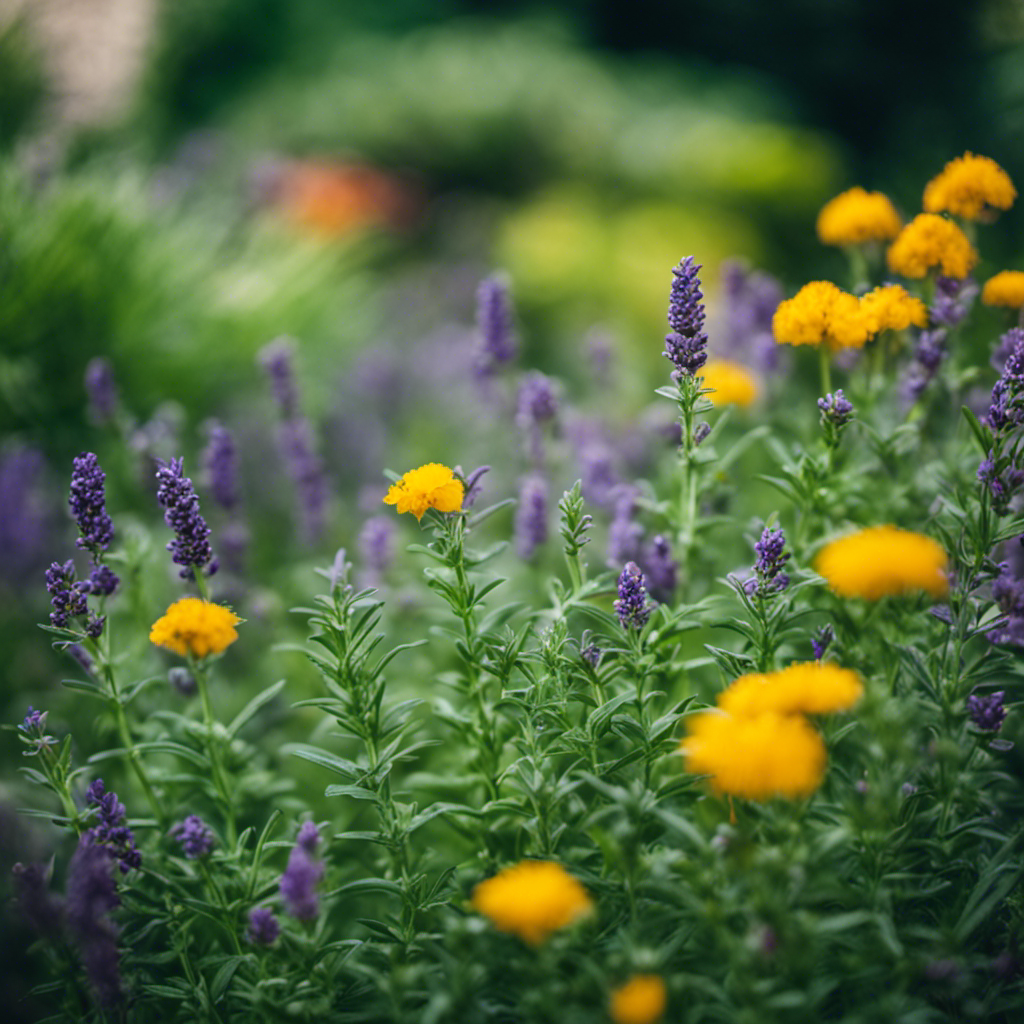
Use natural repellents to keep pests away from your garden and enjoy a peaceful harvest. When it comes to protecting your plants from unwelcome visitors, essential oils and organic solutions are your best allies.
These natural repellents aren’t only effective but also environmentally friendly, ensuring that you’re taking care of the planet while taking care of yourself. Essential oils like peppermint, lavender, and citronella have been proven to repel pests such as aphids, mosquitoes, and ants.
Simply dilute a few drops of these oils in water and spray the mixture on your plants. Alternatively, you can make a homemade organic solution using ingredients like garlic, onion, and hot pepper. Blend these ingredients with water and spray it around your garden to deter pests.
Embrace the power of natural repellents and create a pest-free sanctuary for your plants.
Beneficial Insects
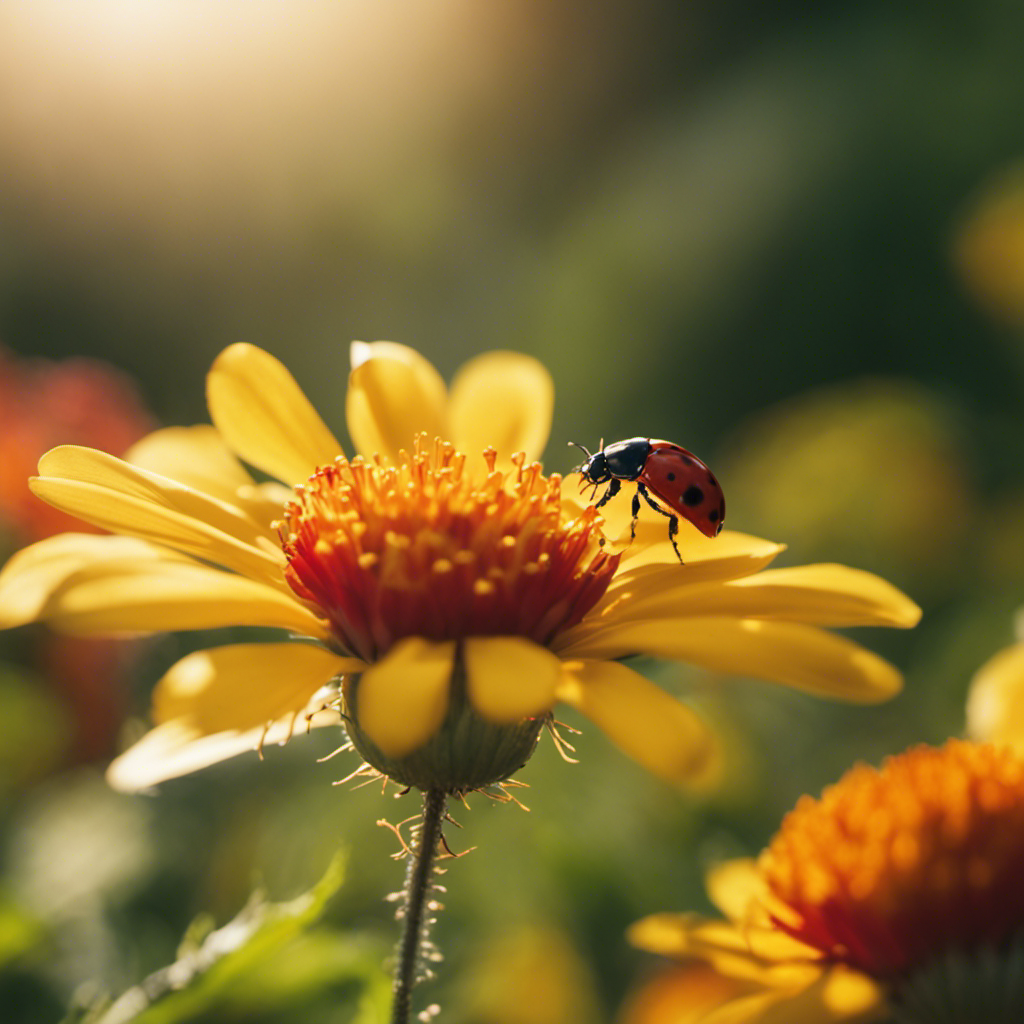
To improve pest management in your garden, you can introduce beneficial insects that help control harmful pests. One such insect is the predatory mite, which feeds on pests like spider mites and thrips, effectively reducing their population. These mites are a great option for organic gardeners as they don’t harm beneficial insects or plants.
Another helpful insect to consider is nematodes, microscopic worms that prey on soil-dwelling pests such as grubs and caterpillars. By adding nematodes to your garden soil, they’ll naturally seek out and eliminate these pests, keeping your plants safe.
Incorporating predatory mites and nematodes into your garden helps maintain a healthy balance and reduces the need for chemical pesticides.
Companion Planting
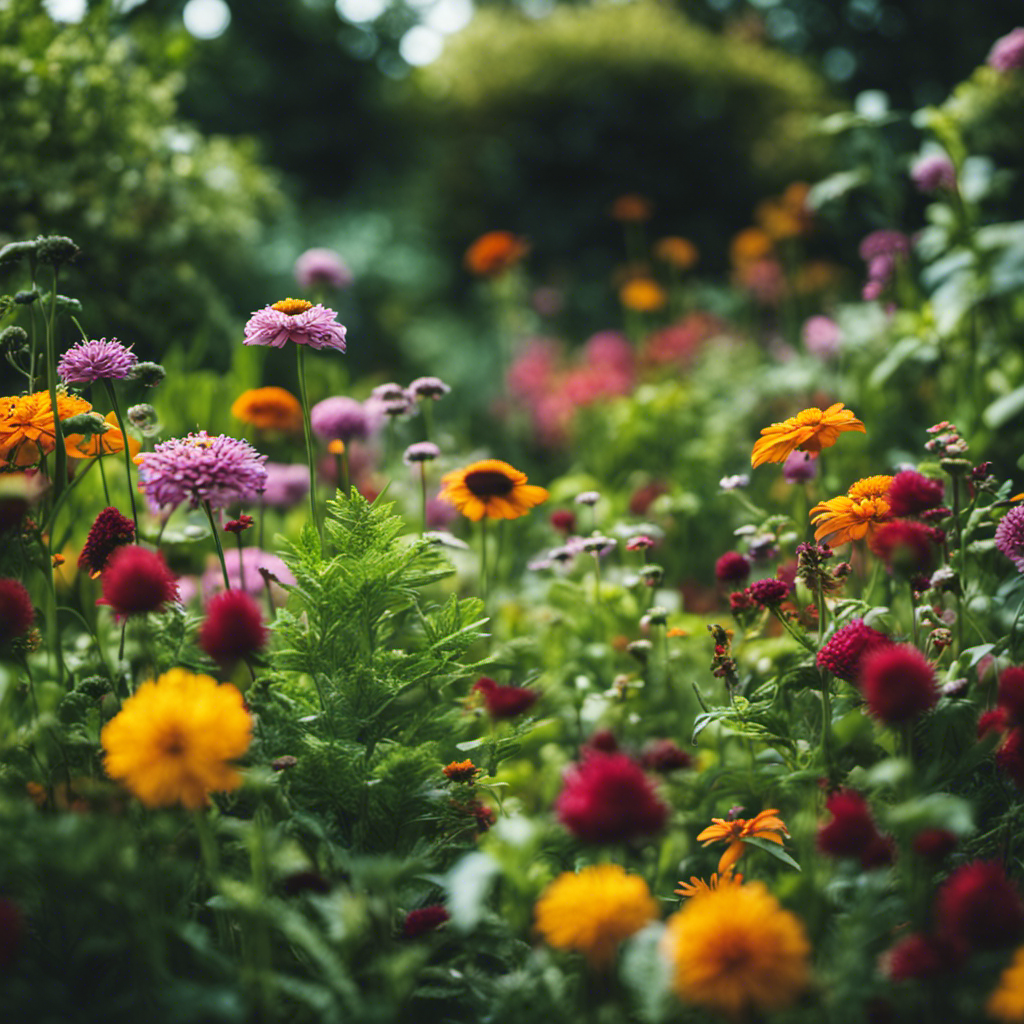
Enhance the effectiveness of pest management in your garden by incorporating companion planting techniques.
Companion planting involves strategically planting different crops together to deter pests, attract beneficial insects, and improve overall plant health.
Here are five companion planting techniques to help you create a harmonious garden ecosystem:
-
Crop rotation: Rotate your crops each year to disrupt pest life cycles and prevent the buildup of pests in the soil.
-
Intercropping: Planting different crops together can confuse pests and make it harder for them to find their preferred host plants.
-
Attract beneficial insects: Plant flowers like marigolds, alyssum, and sunflowers to attract beneficial insects that prey on garden pests.
-
Repel pests with herbs: Intersperse pest-repellent herbs like basil, rosemary, and mint among your vegetable plants.
-
Complementary companions: Certain plants have natural pest-repelling properties. For example, planting onions with carrots can help deter carrot flies.
Homemade Sprays

To effectively repel garden pests and protect your plants, you can create your own homemade sprays. These do-it-yourself recipes offer a natural and effective alternative to harsh chemicals.
One popular spray involves blending garlic, onion, and cayenne pepper with water. After straining the mixture, you can spray it onto your plants. The strong smell and taste of this spray will deter pests like aphids and beetles.
Another option is a neem oil spray, which can be made by mixing neem oil with water and a small amount of dish soap. This spray is particularly effective against mites and whiteflies.
Physical Barriers
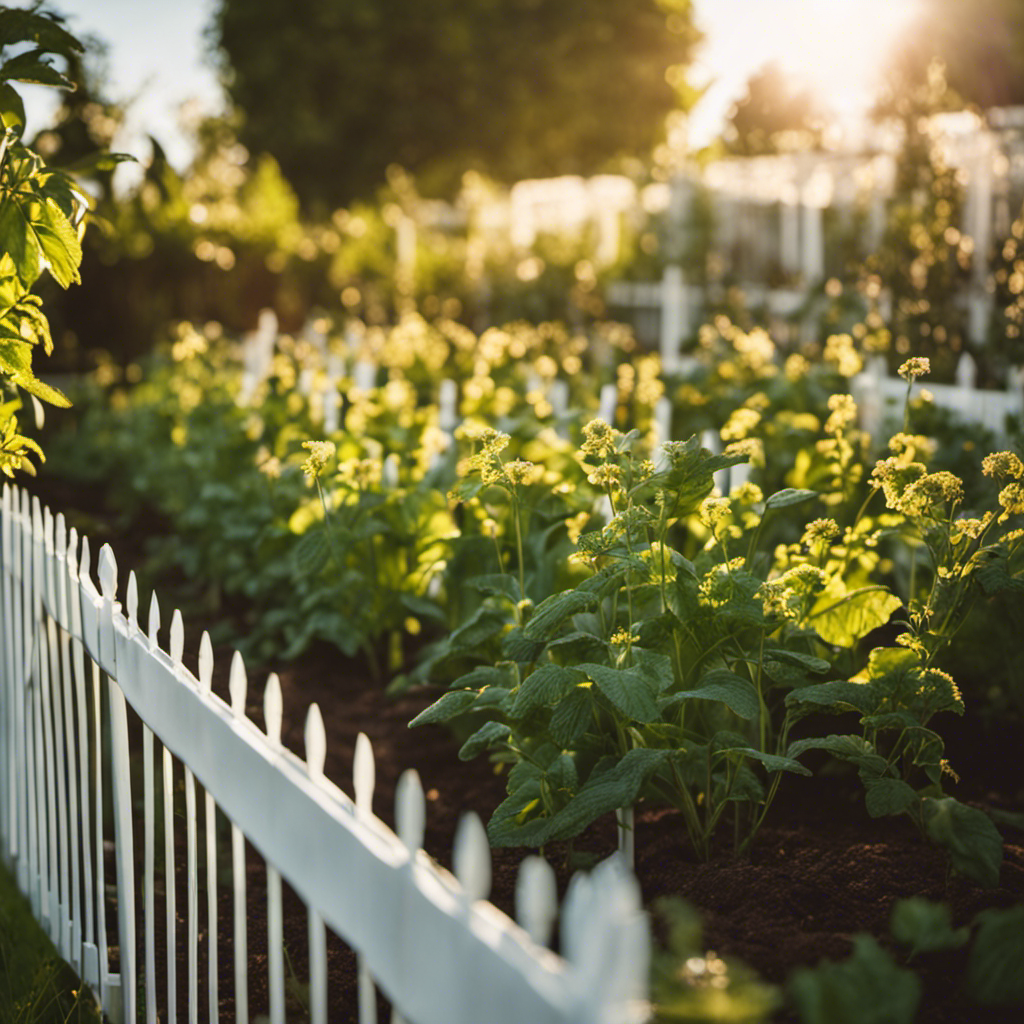
Protect your plants and keep garden pests away with the use of physical barriers in your garden. Here are some practical and eco-friendly methods to help you achieve this:
-
Install row covers: These lightweight fabrics act as shields, protecting your plants from pests while still allowing sunlight and water to reach them.
-
Build a fence: Erecting a sturdy fence around your garden can effectively keep out larger pests like rabbits and deer, preventing them from munching on your precious plants.
-
Use netting: Protect your fruit trees or berry bushes by draping netting over them, keeping birds from feasting on your harvest.
-
Install plant collars: Placing barriers around the base of young plants can effectively prevent crawling insects, such as cutworms, from causing damage.
-
Create a barrier with companion plants: Some plants, like marigolds and garlic, have strong scents that repel pests. Intercropping them with your vulnerable plants can act as a natural deterrent.
Conclusion
So, there you have it! By using natural methods to repel pests, attracting beneficial insects, practicing companion planting, making your own sprays, and using physical barriers, you can effectively get rid of garden pests without resorting to harmful chemicals.
It’s truly amazing how nature provides us with all the tools we need to maintain a healthy and eco-friendly garden.
So go ahead, put these techniques into action and witness the thriving beauty of your garden.
Happy gardening!
